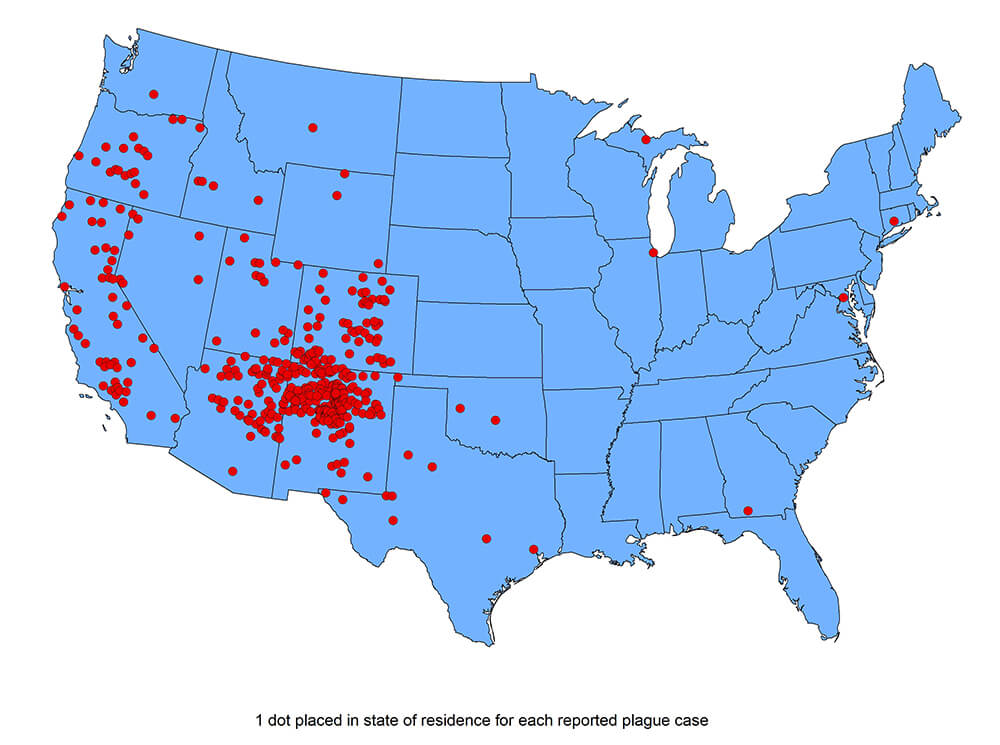BEND, Ore. — Health officials in Oregon say a local resident has a confirmed case of the bubonic plague. While this illness is rare today, it’s the same plague that wiped out nearly a third of Europe’s entire population in the 1300s — an event known as the Black Death.
Officials with Deschutes County Health Services confirmed the human case of plague on Feb. 7, saying that the Oregon resident likely contracted the rare illness from their cat, which was reportedly displaying symptoms of the condition. Bubonic plague is caused by the bacteria Yersinia pestis, a bacteria usually carried by small mammals and their fleas.
Historically, the plague spread to humans from flea-infested rats carried around the world. According to the U.S. Centers for Disease Control and Prevention, bubonic plague first reached the United States in 1900, spreading to the population from infected rats hiding in steamships arriving from various locations in Asia.
“All close contacts of the resident and their pet have been contacted and provided medication to prevent illness,” says Dr. Richard Fawcett, the Deschutes County Health Officer, in a media release.
Reported Cases of Human Plague – United States, 1970-2020

There are actually two main forms of plague, bubonic and pneumonic. Bubonic plague makes up the majority of these illnesses, accounting for roughly 80 percent of all plague cases in the U.S. If someone contracts plague from an infected flea or animals, symptoms will begin to show in two to eight days.
💡What Are The Symptoms Of Bubonic Plague?
- A sudden fever nausea
- Weakness
- Chills
- Muscle aches
- Visibly swollen lymph nodes called buboes
Early detection can prevent a deadly epidemic
Deschutes County Health Services and the CDC note that diagnosing a case of plague early is key to saving the patient’s life and keeping the disease from spreading rapidly. If left untreated, bubonic plague can lead to septicemic plague (a bloodstream infection) or pneumonic plague (a lung infection). Both of these infections are even more difficult to treat.
Officials in Oregon say, fortunately, this new case of bubonic plague was caught early. They added that the resident’s infection poses little risk to the local community and there have been no other cases of plague reported at this point. This is the first case on bubonic plague in Oregon since 2015. CDC records show that the plague is more common in the western half of the U.S.
Aside from mice and rats, officials warn that squirrels and chipmunks are common animals which could be carrying fleas and the plague.
💡10 Tips To Prevent Spreading Bubonic Plague:
- Avoid contact with rodents and their fleas. Never touch sick, injured, or dead rodents.
- Keep pets on a leash outdoors and protect them with flea control products.
- Don’t allow pets to touch sick or dead rodents or explore rodent burrows.
- Pet cats are highly susceptible to plague. If possible, discourage their hunting of mice.
- Talk to a veterinarian immediately if your cat becomes sick after contact with rodents.
- Keep wild rodents out of homes and remove food and other attractants for rodents.
- Do not camp, sleep, or rest near animal burrows or areas where you see dead rodents.
- Do not feed squirrels, chipmunks, or other wild rodents in campgrounds and picnic areas.
- Wear long pants tucked into boot tops to reduce exposure to fleas.
- Apply insect repellent to socks and trouser cuffs to help reduce exposure to fleas.

Maybe bait containing anti-plague inoculation could be dispersed like anti-rabies serum. Wild and feral cats could be rendered safer.